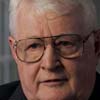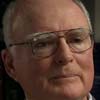Back then Americans could smell, see and even touch pollution. The public demand for action exploded and led to the Clean Air and Clean Water Acts and the creation of the Environmental Protection Agency. So what's changed today?
- RELATED LINKS
- What It Was Like When the Movement Took Off
"When President Nixon and his staff walked into the White House on January 20, 1969, we were totally unprepared for the tidal wave of public opinion in favor of cleaning the nation's environment that was about to engulf us," recalls former Nixon administration official John C. Whitaker. - Interview: Bill Ruckelshaus
He was the first head of the Environmental Protection Agency. - Introduction to the Clean Water Act
This page from the EPA explains what the act is intended to do and how it's been implemented. You can also test your knowledge with a quiz. - Robert F. Kennedy Jr.
- Leon Billings
- William Ruckelshaus
- Jay Manning
Robert F. Kennedy Jr.
Chairman, Waterkeepers Alliance

I remember what it was like for Earth Day. I remember when the Cuyahoga River burned, with flames that were eight stories high. I remember the Santa Barbara oil spill in 1969 that closed virtually all the beaches in Southern California. I remember when they declared Lake Erie dead. I remember that I couldn't swim in the Hudson or the Charles or the Potomac when I was growing up. I remember what the air smelled like in Washington, D.C., which wasn't even an industrial city, but it stank. ... There were thousands of people dying in American cities every year from smog events. ...
And in 1970, this accumulation of insults drove 20 million Americans out onto the street, 10 percent of our population, the largest public demonstration in American history. ... Republicans and Democrats got together. Nixon created EPA [Environmental Protection Agency] and signed many of the first laws into effect.
Over the next 10 years, we passed 28 major environmental laws that protect our air and water and endangered species, food safety, wetlands, etc. Those laws in turn became a model for 120 nations around the world that began to struggle with their own challenges with environmental injury and how to protect the public-trust assets, the commons, the environment back then. And those are the laws that I've spent the last 20 years trying to enforce. ...
There's always been a right to a clean environment. It goes back to Roman times. It's in the Code of Justinian. It's in the Magna Carta. ... Sometimes industry says, "You hippies made up all these rules in 1970, and we're still having trouble complying with them, and we need more time." But these rules are thousands of years old. There's never, ever been a right to pollute the environment.
Leon Billings
Senate staffer, 1966-80

The environment issue came along, and it captured the imagination. Young people streamed to a movement to become involved. [Former Sen.] Gaylord Nelson's [D-Wis.] idea of Earth Day grabbed hold on college campuses, and so there was a significant movement from the bottom up on the environment. And then we got some significant support from Walter Cronkite, who ran this wonderful series over a long period of time on environmental issues. It became both a public grassroots movement and a media movement. ...
The environmental issues scared politicians because they didn't understand it. They were not used to this kind of grassroots-developed movement. They didn't know what to do with it … but they wanted to respond to it. ...
Is this what generated the impulse for all this outpouring of congressional legislation on the environment?
... Sen. [Edmund] Muskie [D-Maine] and a few of his colleagues who were interested in the environment saw the public outburst on the environment as an opportunity to initiate some far-reaching legislation that they had been frustrated in trying to do in years earlier. So they sat down in the backroom with the Senate Environment and Public Works Committee, and they wrote the Clean Air Act, and they wrote the Clean Water Act. They wrote legislation that was different than any domestic legislation in American history. ...
So it was a real shift in the public climate that made that possible, wasn't it?
The public climate shift was used very effectively by the congressional advocacy community. Remember that in 1970, '71, '72 ,when all of this was evolving, there was no such thing as a national environmental movement. There were some old-line conservation groups, and there was a fairly well-organized business community opposed to our efforts. But the lobby community was different in Washington in those days. So what Muskie and his colleagues had said [was]: "We've got a body politic out there that wants something to be done. We've got an opportunity to do it, and we're going to do it in a major way."
Now, where was President Nixon in all this? Nixon has gotten a reputation in history as having been an environmental president. Was Nixon pushing these things, or was Nixon being pulled along by Congress and the public?
Nixon certainly wasn't pushing them. To suggest that he was would be a canard. Muskie introduced legislation to create the Environmental Protection Agency long before Nixon proposed it. Then Nixon followed along with his plan. The Nixon people never offered a significant Clean Water Act proposal. They just tried to limit the scope of the Muskie proposal, and then when we finally passed the Clean Water Act -- the Senate and the House unanimously -- Nixon vetoed it. And for the first time in the Nixon administration, he had a veto overridden, substantially and significantly.
And what does that say? Nixon was out of step with the country? Nixon didn't care about the problem?
It was my impression -- and I'm a Democrat, so I've got to be forgiven for that -- that Nixon's interest in the environment was strictly political. He was responding to the threat of a Muskie candidacy, ... Ed Muskie of Maine, the Democratic nominee. That's why he signed the Clean Air Act. And when it came around to the Clean Water Act, Muskie was no longer in the picture as a presidential nominee, and that's why he vetoed it.
… Do you have a sense that Nixon was a strong backer of [William] Ruckelshaus [whom he nominated as the first EPA administrator], encouraged him to be vigorous? ...
... I think that the White House political people thought Ruckelshaus, coming as a Republican out of the Indiana Legislature, was a good team player, and he would play ball the way that they thought he ought to. It turned out he did some of the time, but a lot of the time he didn't. He brought very good people into the Environmental Protection Agency. He was very supportive of some of the initiatives that Muskie and Sen. Howard Baker of Tennessee, a Republican, and others took. But I didn't get the sense that he was a creature of the Nixon White House. ...
I think that what stands out about what Ruckelshaus did ... had more to do with the kind of people that he brought in than it did with the specific policies that he had to implement. He implemented what the law said that he had to do, but he brought people in who I think gave the bureaucracy confidence that they were going to get the job done. ...
He was in a difficult situation, with a White House that wasn't particularly supportive of what the laws required. He could either do a good job and be aggressive and make a name for himself and a reputation that would go down in history … or he could be slack and not do a good job and not get that reputation. And I think Bill Ruckelshaus had a good enough sense of history to realize … that would be his legacy. ...
I think he gets high marks because he was perceived as being a person who was going to carry out the mission that he had been given by the Congress, and he did it.
Make the EPA effective.
That's right.
William Ruckelshaus
EPA administrator 1970-73, 1983-85
What did you see your job as being when you got the agency started? …
It seemed to me we had a societal issue, and that was the federal government had never been very active in trying to deal with pollution abatement or protection of the environment or public health. … It was left up to the states. And my impression from having had that experience in the state of Indiana [working on environmental issues] was the states weren't good regulators of industry on the question of health, safety and the environment. They had competed so strongly for industry being located in their borders that they just weren't good regulators, or there wasn't much political support for going after polluters and after this kind of problem.
So what you needed to do was … focus the attention on the central government, set some reasonable standards and then go about enforcing them.
That was important to do because the public was all riled up about this problem -- for justifiable reasons, in my judgment -- and they needed to be reassured that their government was responding to their demands that something be done about this problem. … So we had to select some big, visible polluters -- both industrial and municipal -- go after them, make sure the public understood we were being responsive to their concerns, and that would energize the agency and get us in a position to do things that needed to be done in order to address the problem.
So you had to enforce the law. You had to be a tough regulator.
That's right, in order to be successful you had to reassure the public that this was a problem the government was taking seriously. We had to be tough. We had to issue standards and we had to enforce them. ... There were targets galore, and most of the people running big American manufacturing facilities in those days believed this was all a fad; it was going to go away, and all they had to do was sort of hunker down until the public opinion subsided, public concern subsided, and it would go away. ...
As the first administrator of EPA, some of your biggest fights were within the administration, with the White House?
... There were a lot of people who were economic ideologues who just don't like this kind of social regulation, for the government to intervene on behalf of health, safety and the environment. They almost always believed the government went too far. The benefits associating with that regulation were nowhere near the cost, and they just don't like that kind of regulation. ... In any Republican White House, the forces are weighted against you. ...
… What do you find when you have come back to EPA for the second time a decade later, and what do you need to do?
When I came back to EPA in April 1983, it was a real mess. ... What we had was an agency really working against itself with political appointees sort of treating a lot of the people who were there as though they didn't know what they were doing and that they were instruments of an illegitimate exercise of power. ...
And so what I had to do is just get rid of all those presidential appointees, 13 of them. We only kept one. We kept one guy, a good guy. He was on an air program. The rest of them, gone, all 12. ...
[The] first thing we do was have an all-hands meeting in the basement of EPA over in Waterside Mall. In the Washington area there are probably 1,000 people who work at EPA. We got them all together and said: "This agency is going to run the way it used to. It's going to do its job under the law. That is what our responsibilities are, and we have got to go to it." ...
All you had to do is say, "We're going to do what we're supposed to do as public servants, so get on with it," and that lifted so much of the concern that people had about it. …
Jay Manning
Director, Washington State Department of Ecology
I think the '70s was the high-water mark for idealism and for optimism and belief that anything was possible, and this decade has been much more realistic. The easy stuff, to the extent there was ever easy stuff, that got done in the '70s. We got the big factories with their big pipes discharging into Puget Sound under control, treating their wastewater so that it wasn't harmful. ...
But in this decade, we are into an era of diffuse sources, where the sources aren't a few big pipes, but they are every car on the highway, every farm field, every person's lawn. They contribute very little individually, but taken together, they are the big, uncontrolled sources. ...
It's about the way we all live. And unfortunately we are all polluters. I am; you are; all of us are, because we live in an industrialized society that puts us there. And all of us have to strive every day to make those differences. And our job now, in a lot of cases, is giving people the information and the options to change the way they impact … the world around them. ...

